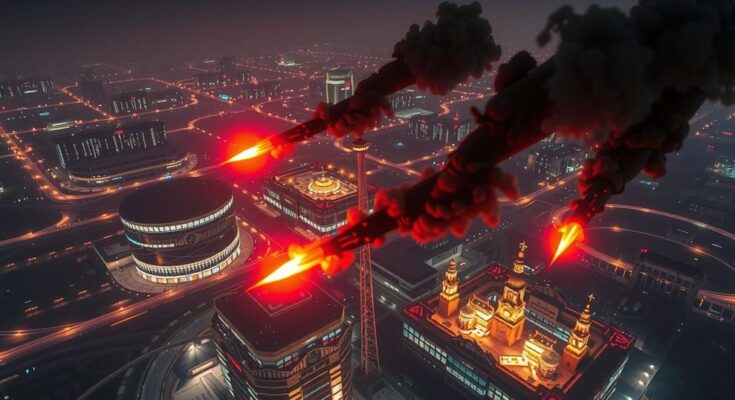Israeli airstrikes near Damascus coincide with Syrian celebrations marking the fall of the al-Assad regime. The Arab League condemns Israel’s territorial actions while Turkiye resumes its diplomatic efforts in Syria, emphasizing a terror-free environment and the need to eliminate the terrorist group YPG. Continuous coverage of these developments highlights the complexity of Syria’s future in the wake of these transformative changes.
Recent events in Syria have unfolded dramatically, marked by Israeli airstrikes near Damascus amid celebrations by Syrians following the fall of the al-Assad regime. The Arab League has condemned Israel’s actions related to its territorial claims and seeks a UN Security Council meeting to address the situation. Concurrently, Turkish Foreign Minister Hakan Fidan announced the resumption of Turkiye’s embassy operations in Syria, outlining Ankara’s aspirations for creating a comprehensive government while emphasizing the elimination of the YPG, a Kurdish group considered terrorist by Turkiye.
The atmosphere in Syria has shifted significantly, with citizens gathering in Damascus to mark the end of decades of oppressive rule. The iconic Umayyad Mosque became a focal point for worshippers celebrating their newfound freedom. The world is witnessing active developments, including the U.S. citizen Timmerman’s transfer to American authorities following his release from Syrian prisoners. Various local news outlets are providing continuous coverage of these ongoing changes in Syria, urging observers to remain attentive to emerging stories.
The Syrian conflict has endured for over a decade, characterized by significant political upheaval, the rise of various factions, and foreign involvement. The al-Assad regime, which has ruled Syria since 1970, has faced widespread rebellion, especially following the Arab Spring. The recent fall of this regime has sparked celebrations among the populace, signifying hope for change. However, the region remains volatile, with external powers, such as Israel and Turkey, actively involved in shaping the future of Syria, often complicating the prospects for peace and stability.
In summary, the recent developments in Syria signal a notable shift in the political landscape following the fall of the al-Assad regime, with international reactions closely monitoring the situation. The combination of domestic celebrations and foreign diplomatic moves outlines the complexities facing Syria’s transition toward a potentially new government structure. The ongoing presence of foreign powers such as Israel and Turkiye adds layers of geopolitical tension that will need careful navigation moving forward.
Original Source: www.aljazeera.com




